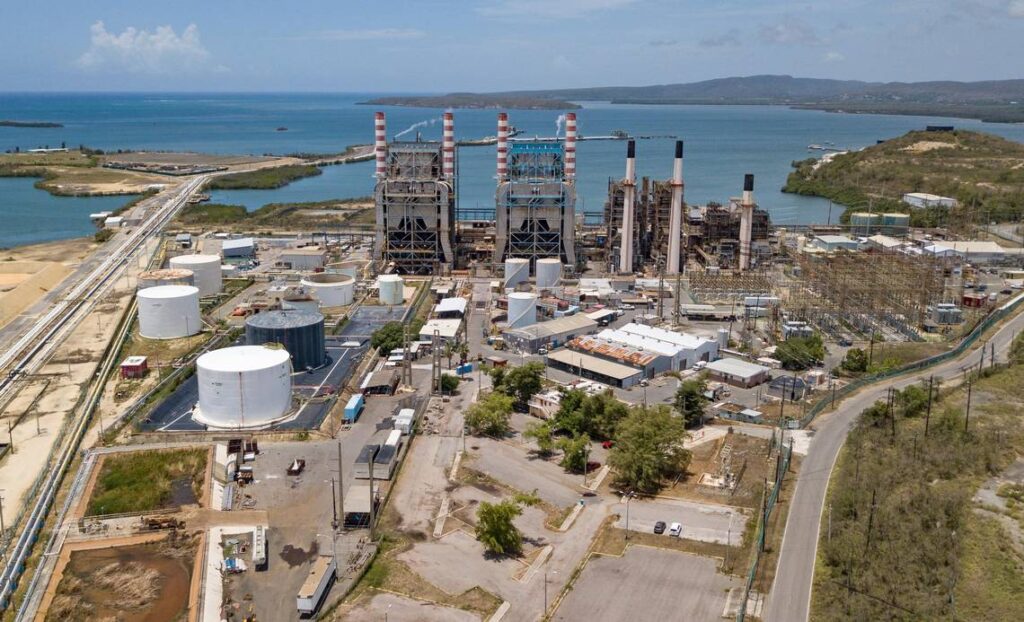SAN JUAN — A day before potential Tropical Storm Isaias was expected to bring rains and winds to Puerto Rico, at least 400,000 customers throughout the island were left without power.
The outage affected multiple municipalities — from cities in the metropolitan area such as San Juan and Guaynabo to the mountainous towns of Jayuya and Naranjito to the coastal town of Cabo Rojo in the southwest.
But even this morning, hours before the storm was expected to be felt across the island and people and officials prepared for its effects, an internal spat within Puerto Rico’s bankrupt electric utility company dominated early headlines.
Following Tuesday night’s outage, executives and workers for the Puerto Rico Electric Power Authority, PREPA, could not agree on what caused the widespread blackout, as the utility’s head blamed it on “internal terrorism” and called for a federal investigation.
The renewed outrage over the island’s beleaguered electric power grid also comes after a letter from the Federal Emergency Management Agency that claimed Puerto Rico was not prepared to respond to a “major event,” according to reports from CBS News, on top of a rising number of COVID-19 cases.
Angel Figueroa Jaramillo —president of Electrical Industry and Irrigation Workers Union, a well-known union representing PREPA workers — tweeted about the incident. The failure originally seemed to be related to a problem in a transmission line that connects both to natural gas power plant EcoElectrica and Costa Sur, one of PREPA’s main power stations.
According to Figueroa Jaramillo, the most affected municipality was Caguas, with 72,000 residents left without electricity.
Tuesday night, PREPA executive director Jose Ortiz said that they had not found the cause of the power outage, and that they continued to investigate.
“After patrolling the entire line, not a single problem was found…It’s something that’s pretty odd. We are analyzing the situation with great suspicion,” said Ortiz at a press conference.
Wednesday morning Ortiz said the power outage was caused by “human hand.” He said a box of breakers had been manipulated, which left the area between Arecibo and Isabela without system protection.
“It’s internal terrorism,” Ortiz told local radio station WKAQ. He also added there was enough evidence to involve the FBI and the Department of Homeland Security to investigate the incident.
According to local newspaper El Nuevo Dia, Figueroa Jaramillo said this was impossible due to the nature of the failure in the electric grid and denied Ortiz’s reasoning for the cause of the power outage. He also called for Ortiz to submit his claims under oath.
At the time of writing, the Virgin Islands Free Press was waiting for a comment from Figueroa Jaramillo.
Puerto Ricans on social media have been critical of Ortiz’s allegations. Local TV anchor Julio Rivera-Saniel said on Twitter that it reminded him of a 2006 incident in which former PREPA executive director Edwin Rivera accused the UTIER of causing a fire in the San Juan-based power station Palo Seco.
“The FBI later concluded that that version was false,” wrote Rivera-Saniel. “The problem? Maintenance.”
On late Wednesday morning, another power outage in a transmission line in Yabucoa, was reported. Figueroa Jaramillo estimated that this new outage had left at least 33,000 without electricity, and said more could be potentially affected.
The massive power outages coincides with an active hurricane season, and highlight the fragility of Puerto Rico’s electric grid.
Hurricane Maria destroyed 80% of the island’s utility poles and left the island plunged in darkness for months. Vieques, an island municipality of the Puerto Rican archipelago, was still running on generators a year after the storm. The power outage post-Maria was considered to be the largest in the United States and second in the world after the 2013 blackout in the Philippines after Typhoon Haiyan.
In October, Puerto Rico revealed a $20 billion, decade long plan to fix its power grid so it could tolerate winds as strong as 160 miles per hour without damage. However, power outages — particularly in the face of natural disasters — are still common.
More recently, a powerful 6.4 earthquake in January essentially left the entire island without power and damaged power plants in the south of the island.
Arturo Deliz, an administrator in the PREPA office for disaster management told Primera Hora that the electricity company was ready to deal with the expected tropical storm that will arrive in Puerto Rico tonight.
“Thanks to the lessons learned from Maria, we understand that we are prepared to face this atmospheric phenomenon,” Deliz told the local newspaper.
Governor Wanda Vazquez, at a news conference on Tuesday night, said the storm would likely cause interruptions to electricity for consumers on the island. At the time of the conference, in which Vazquez detailed how Puerto Rico would prepare for the storm, thousands were still without power.

